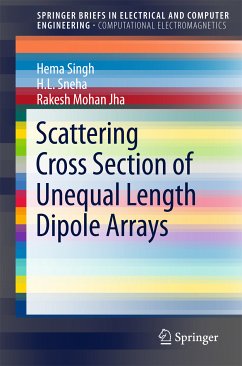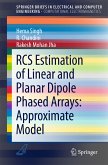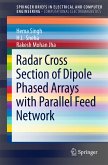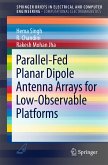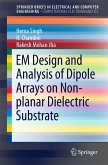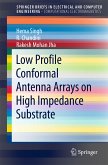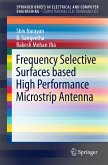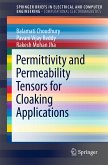This book presents a detailed and systematic analytical treatment of scattering by an arbitrary dipole array configuration with unequal-length dipoles, different inter-element spacing and load impedance. It provides a physical interpretation of the scattering phenomena within the phased array system. The antenna radar cross section (RCS) depends on the field scattered by the antenna towards the receiver. It has two components, viz. structural RCS and antenna mode RCS. The latter component dominates the former, especially if the antenna is mounted on a low observable platform. The reduction in the scattering due to the presence of antennas on the surface is one of the concerns towards stealth technology. In order to achieve this objective, a detailed and accurate analysis of antenna mode scattering is required. In practical phased array, one cannot ignore the finite dimensions of antenna elements, coupling effect and the role of feed network while estimating the antenna RCS. This book presents the RCS estimation of an array with unequal-length dipoles. The signal reflections within the antenna system and the mutual coupling effect are considered to arrive at the total RCS for series and parallel feed. The computations are valid for any arbitrary array configurations, including side-by-side arrangement, parallel-in-echelon, etc.
Dieser Download kann aus rechtlichen Gründen nur mit Rechnungsadresse in A, B, BG, CY, CZ, D, DK, EW, E, FIN, F, GR, HR, H, IRL, I, LT, L, LR, M, NL, PL, P, R, S, SLO, SK ausgeliefert werden.

